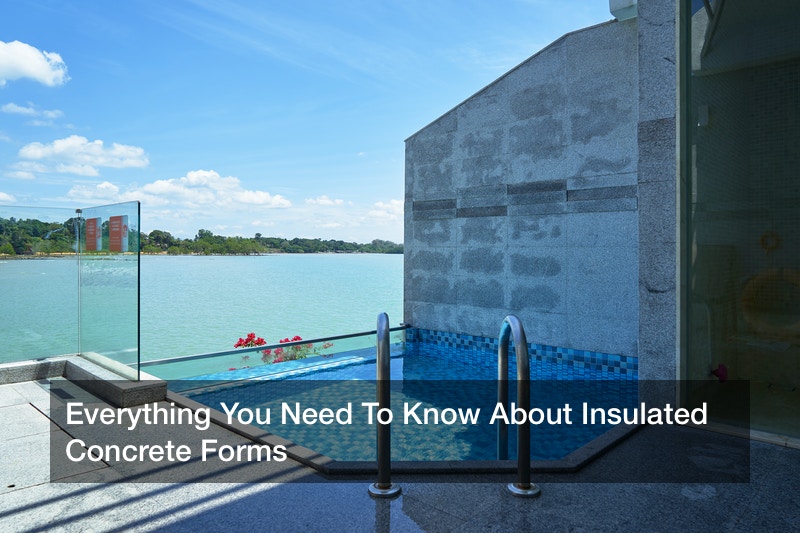Concrete is one of the most important materials in the history of mankind. Its strength and durability allow it to tolerate heavy loads and last thousands of years; it’s no wonder that it’s used in everything from building foundations to interstate highways.
Unfortunately, it isn’t the greenest material. Homes built using concrete aren’t as insulated as they can be, leading to huge losses in energy; when the temperatures soar in the summer or drop in the winter, the cost of cooling and warming your home often reaches extremes. Switching to properly insulated materials can reduce these costs by more than 40%, and nothing does the job better than insulated concrete forms, or ICF.
What Is ICF?
Insulated concrete forms are premade blocks that fit together like Legos. The outside is comprised of flat sheets of foam insulation which are connected via a plastic framework; during construction, the ICF blocks are fitted together, laced with rebar for added support, and filled with concrete. Because they’re insulated on both the inside and the outside, they provide an exceptionally high level of wall insulation uncommon in standard home construction.
Why Choose ICF?
The obvious benefit of ICF construction is its cost-effectiveness. The materials are energy-efficient in the extreme, saving you thousands of dollars throughout the lifespan of your home. This also makes them environmentally-friendly; in a world where our climate matters more than ever, the less energy we waste, the better. The following advantages are simply bonuses at this point.
- Lowest Waste Product: ICF blocks are designed with one-inch repeating interlock pattern, which ensures that the least material necessary is wasted during construction. The prefabricated forms cut down on waste as whole, and the leftover scrap is easily recycled; any portion of ICF blocks with at least one web in them can be filled into any part of a wall.
- Disaster Resilience: The rebar placed in ICF blocks turns its concrete filling into reinforced concrete. This provides exceptionally strong walls that support almost any concept or design and can tolerate more than 200 mph winds, impacts from debris, and other challenges that life (and its storms) may throw at you.
- Comfort: ICF walls will protect you from the heat and cold, but they don’t stop there. They possess an STC (sound transmission class) rating of 54, which means shouting outside the walls cannot be heard. Whatever is outside stays outside when your home has insulated concrete walls.
If you’re in the process of designing your home, don’t skimp on the materials. By investing in ICF walls and blocks, you can leave a positive mark on the environment and see savings for years to come.




